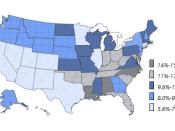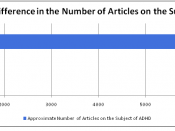In society today, divorce has become such a prevalent phenomenon, that people wonder what effects it has on children, both immediate and later in life. Research has found that children may experience severe problems with the divorce of their parents. Some such problems have been Attention Deficit Hyperactivity Disorder, Operation Defiant Disorder, and Obsessive Compulsive Disorder (Stolberg &Mahlar, 1994). Most studies have consistently found that other psychological problems such as anxiety and depression exist as a result of divorce (Sandler, Kim-Bea, & MacKinnon, 2000; Burroughs, Wagner, & Johnson, 1997; Stolberg et al., 1994; Lee, Picard, & Blain, 1994; Tein, Sandler, MacKinnon, & Wolchik, 2004). Other findings suggested that children were more likely to have certain psychological disorders if parents exhibited certain symptoms (Summers, Forehand, Armistaead, & Tannenbaum, 1998; Forehand, Thomas, Wierson, Brody, & Fauber, 1990). Furthermore, long term problems such as adult relationships can be linked to the after effect of divorce once they grow up (Summers et al.,
1998). Based on these results of psychological problems caused by divorce, the study of psychology now focuses its efforts on ways to effectively treat and prevent maladjustment related to divorce. This paper will evaluate the effectiveness of different prevention and treatment methods that are being used and studied in the field of psychology.
Causes of psychological problems
Forehand and colleagues (1990) investigated whether or not parenting of divorced families was a factor in the way children respond to a divorce. The researchers examined both parents and adolescents from both divorced and non divorced families, using five different questionnaires. None of the divorced parents participating in this study were remarried. One of the questionnaires required the teachers to fill out their observations of the child's behavior. They reported the child's behavior to be more problematic statistically speaking. The researchers also assessed...


